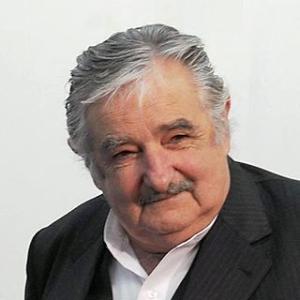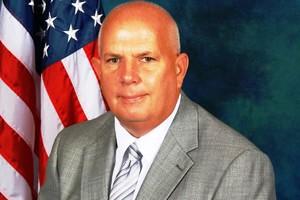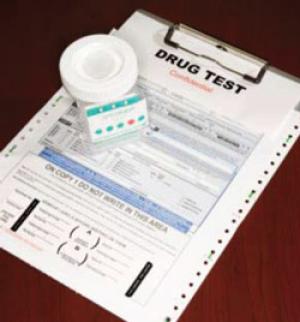A bill to legalize and regulate marijuana markets and consumption has passed the lower House of the Uruguayan parliament. It now heads for the Senate later this year.
Will Ohio go for medical marijuana in November 2014? The Ohio Rights Group is gathering signatures now to put the Ohio Cannabis Rights Amendment on the ballot next year.
The leader of Canada's Liberal Party, Justin Trudeau, has reenergized the drug policy debate north of the border by calling for marijuana legalization.
Now more than ever, StoptheDrugWar.org needs your financial support to continue to provide this crucial informational tool that builds and empowers the movement. We have a special new offer for those donating $50 or more, which this post provides some updated information about.
A dispensary is now open for business in the nation's capital, several dozen are coming to Arizona, dispensary and cultivation battles continue in California, Massachusetts advocates prepare to protest restrictive regulations, and the DEA hits a Michigan dispensary.
The overall US prison population continues an achingly slow decline even as the federal prison population continues to expand, but there are still more than 330,000 drug war prisoners in America, and that's not even counting the jails.
The DEA will pay $4.1 million to a San Diego college student whom agents locked in a holding cell and forgot about for five days.
A "for cause" welfare drug testing bill has passed the North Carolina legislature and now awaits the governor's signature.
It looks like two, and possibly three, Michigan communities will vote on marijuana decriminalization this year. It's part of a broader effort to pass a statewide decrim bill.
The Western Mexican state of Michoacan is becoming the latest hotspot in Mexico's drug wars, and now, a high-ranking Mexican Navy officer has been killed.
A suburban Phoenix photographer was shot and killed by police on a drug raid Wednesday afternoon. His friends are skeptical of the official version of events.
A Georgia narcotics officer was killed Tuesday when his vehicle crashed as he rushed to assist in a traffic stop drug bust. Another was seriously injured.
Deputies packing dope, jail guards smuggling dope, cops doing a little money laundering, and cops getting information for their dope dealer buddies. Just another week in the drug war.
Interns are making an important difference fighting the good fight with us at StoptheDrugWar.org.
The Uruguayan lower house of parliament passed a bill that would create the world's first legal, regulated marijuana markets Wednesday night. The bill passed on a vote of 50-46 after nearly 12 hours of debate.

Movida Cannabica Florida Uruguay display at the Legislative Palace (facebook.com/movida.floridauruguay)
"Sometimes small countries do great things," said Ethan
Nadelmann, executive director of the
Drug Policy Alliance (
DPA). "Uruguay's bold move does more than follow in the footsteps of Colorado and Washington. It provides a model for legally regulating marijuana that other countries, and US states, will want to consider -- and a precedent that will embolden others to follow in their footsteps."
Under the bill, the Uruguayan government would license producers, sellers, and consumers. Smokers would be limited to buying 40 grams a month. Unlicensed possession, cultivation, or sales would be criminal offenses, including prison time in some cases.
Registered users would be able to grow up to six plants, join a marijuana-growing collective, or purchase marijuana at a dispensary or pharmacy.
President Jose Mujica has been pushing the bill as a means of attacking black markets and organized crime by creating a legal, licensed marijuana marketplace. He first unveiled it nearly a year ago, but postponed voting at year's end to try to rally public support. A "Responsible Regulation" campaign including TV ads tried to sway the public in recent weeks, to little effect, and public opinion remained opposed to the measure.
But Mujica's Broad Front (Frente Amplio) coalition held a narrow 50-49 edge in the lower house, and parliamentary discipline prevailed. The bill will go before the upper house later this year. The Broad Front holds a bigger majority there, meaning the bill should pass if discipline continues to hold.
"At the heart of the Uruguayan marijuana regulation bill is a focus on improving public health and public safety," said Hannah Hetzer, who is based out of Montevideo, Uruguay, as DPA's Policy Manager of the Americas. "Instead of closing their eyes to the problem of drug abuse and drug trafficking, Uruguay is taking an important step towards responsible regulation of an existing reality. By approving this measure, Uruguay will take the broad regional discussion on alternatives to drug prohibition one step further. It will represent a concrete advance in line with growing anti-drug war rhetoric in Latin America," she said.

Uruguayan President Jose "Pepe" Mujica (wikimedia.org)
According to accounts from the
Associated Press and
Agence France-Presse, the debate Wednesday featured sign-waving crowds dancing to reggae music outside the Congress building and dozens of legalization supporters filling the galleries.
"The regulation is not meant to promote consumption, consumption already exists," lawmaker Sebastian Sabini, who helped draft the legislation, said at the beginning of the session.
The black market in marijuana "finances organized crime" and "marijuana use has doubled in the last 10 years," pro-legalization lawmakers added.
Opposition lawmakers were unimpressed with the arguments.
"We will not end the black market," warned National Party lawmaker Gerardo Amarilla. "Ninety-eight per cent of those who are today destroying themselves with base cocaine began with marijuana. I believe that we're risking too much. I have the sensation that we're playing with fire."
Richard Sander of the opposition Colorado Party played an anti-legalization video of ex-addict testimony, adding that the government plan was full of "ad-libbing."
But the opposition came to nought in the end, and now Uruguay is one step closer to becoming the first country in the world to have a legal, regulated marijuana market.
back to top
Medical marijuana backers in the Buckeye State hope the third time is the charm. After twice failing to move initiative efforts in the past couple of years, activists have unveiled a third campaign, this one aimed at putting the Ohio Cannabis Rights Amendment (OCRA) on the ballot for the November 2014 elections.

Willie Nelson endorses the OCRA in Cincinnati, July 19 (Cincinnati Teapot Party)
Medical marijuana has broad popular support in Ohio -- a
March Columbus Dispatch poll had support at 63% -- and a victory in Ohio would plant medical marijuana firmly in the Midwest. So far in the region, only Michigan has a medical marijuana law, although Illinois could be a medical marijuana state by the time you read these words--a bill there awaits the governor's signature.
Proponents have a tough path to follow. To qualify for the ballot, they need to gather some 385,000 valid voter signatures in the next 11 months, including at least 5% of voters from each of half of the state's 88 counties. Those are the kind of signature requirements that typically require paid signature-gathering campaigns. Ohio Rights, the people behind the OCRA, are looking for big-name funding, but right now, their campaign is relying on a network of volunteers.
"For now, it's an all-volunteer effort," said campaign spokesperson Mary Jane Borden (no relation to StoptheDrugWar.org executive director David Borden), who in addition to campaigning for marijuana reform at home is also a past editor of that valuable compendium of drug policy information, Drug War Facts. "We will definitely be approaching big donors, but we would like to match them dollar-for-dollar in smaller contributions, like Obama, who collected hundreds of millions in small donations."
The campaign will in part pitch itself to donors as a jobs campaign, Borden said.
"Not only will the OCRA create an ethical industry and lots of jobs once it passes," she said, "but getting the amendment on the ballot itself can be a jobs creator if we get the funding. Doing a campaign like that creates jobs, and that's an important message in Ohio."
In the meantime, it's volunteer time, and that's off to a good start, said Borden. "It's been a real whirlwind and very gratifying," she said. "We went through all this work to craft the initiative, and this army of people comes out to us. It's happening almost organically. We have county captains in 40 counties now, and multiple captains in the larger counties."
The OCRA bases itself on rights enumerated in the Ohio constitution, particularly Article I, Section I, which says that Ohioans are "by nature, free and independent, and have certain inalienable rights, among which are those of enjoying and defending life and liberty, acquiring, possessing, and protecting property, and seeking and obtaining happiness and safety."
"We thought the rights approach was the best approach," said Borden. "We saw that a lot of these laws passed in other states didn't really go to the rights. You might avoid jail for possession, but you forfeit your rights. People are losing jobs, losing custody of their children, losing housing. There is no effective right to use."
The language of the initiative itself reflects that approach. Eligible residents not only have the right to use medical marijuana, but to do so "free of discrimination and interference from the state of Ohio" as well as the right to privacy and confidentiality, the right not to get busted for impaired driving based solely on the presence of marijuana metabolites, and the right to grow their own.
The initiative would legalize, license, tax, and regulate medical marijuana; create an open-ended list of qualifying diseases and conditions; create an Ohio Commission of Cannabis Control to oversee medical marijuana; and allow for industrial hemp production to boot.
It's already picking up some big-name supporters. On July 19, famed country singer (and pot aficionado) Willie Nelson came to Cincinnati for a concert, and before the show, he formally endorsed the OCRA. The Cincinnati chapter of Nelson's Teapot Party and Happy Hemptress Lynne Wilson set up a meeting and invited Ohio Rights activists, and Nelson came on board.
"Willie is a member of the choir, of course, but he's a big name, too," said Borden. "We're very excited to have him on board."
And now, the campaign is starting to generate some opposition. On Wednesday, a group of medical professionals held a press conference in Columbus to speak out against the initiative. The star speaker for the opposition was Dr. Andrea Barthwell, who served in the White House Office of National Drug Control Policy under President George W. Bush.
"Doctors have something that is FDA approved, reliable and tested to treat every illness people claim will be better, or reduced suffering, when using marijuana," said Barthwell.
Ohio Rights takes the opposition attention in stride.
"It's the usual suspects," said Borden. "The treatment industry is scared to death it will lose clients. And they did their press conference with very little notice, because they're scared we'll be down there counter-demonstrating."
The campaign now has until next July 2 to hand in signatures. If it can meet that challenge, Ohio voters will be voting on medical marijuana in November 2014.
For extensive information about the medical marijuana debate, presented in a neutral format, visit MedicalMarijuana.ProCon.org.]
back to top
Canada's opposition Liberal Party head Justin Trudeau has called for the legalization of marijuana, putting himself and his party on a collision course with the ruling Conservatives ahead of 2015 elections. Trudeau's stand also differentiates the Liberals from the New Democratic Party (NDP), which has been the progressive party on drug reform, but which only calls for decriminalization.

Justin Trudeau (wikimedia.org)
The Liberals adopted
marijuana legalization as a platform plank in January 2012, but Trudeau had previously lagged behind the party, calling only for
decrim.
Trudeau revived drug policy as an issue when, at a Kelowna, British Columbia, event Sunday, he spotted someone in the crowd holding a sign calling for decriminalization.
"I'll take that as a question," he volunteered. "I'm actually not in favor of decriminalizing cannabis, I'm in favor of legalizing it, tax and regulate," he said to applause. "It's one of the only ways to keep it out of the hands of our kids, because the current war on drugs, the current model, is not working."
In Vancouver on Thursday, Trudeau elaborated.
"Listen, marijuana is not a health food supplement, it's not great for you," he told reporters, but added that it was no worse for people than cigarettes or alcohol and he was now willing to go further than just decrim. "I have evolved in my own thinking," Trudeau said. "I was more hesitant to even decriminalize not so much as five years ago. But I did a lot of listening, a lot of reading, and a lot of paying attention to the very serious studies that have come out and I realize that going the road of legalization is actually a responsible thing to look at and to do."
When Liberals controlled the national government at the beginning of this century, they moved to reform the marijuana laws. But the Liberals only favored a quasi-decriminalization, and they ended up not even being able to move that forward.
The Conservatives have held national power since 2006 and have ratcheted up penalties for some drug offenses, including some marijuana offenses. Responding to Trudeau's comments this week, the party said it was staying the prohibitionist course.
"These drugs are illegal because of the harmful effect they have on users and on society, including violent crime. Our government has no interest in seeing any of these drugs legalized or made more easily available to youth," the prime minister's office said in a statement.
The Conservatives' position on marijuana puts them out of step with most Canadians on the issue. An Angus-Reid poll last fall showed Canadian support for legalization at 57%, and other surveys have polled even higher.
back to top
Dear friend of drug policy reform,
StoptheDrugWar.org needs your support more than ever before to continue our work of getting the word out online for the drug policy reform movement, building the movement, and providing this crucial informational tool that reformers around the world use in their work every day. I ask your support at this time with the most generous donation you can afford to enable this newsletter to continue.
In recent weeks we've announced our latest offer for members donating $50 or more, author-signed copies of three important new books. Phil has now completed reviews of all three of these works, most recently NYT bestselling author Doug Fine's -- Too High to Fail: Cannabis and the New Green Economic Revolution, as well as Marc Mauer and Sabrina Jones's Race to Incarcerate: A Graphic Retelling and Carl Hart's High Price: A Neuroscientist's Journey of Self-Discovery That Challenges Everything You Know About Drugs and Society.
To donate, and to order any of these or other items we offer, please use our online donation form at http://stopthedrugwar.org/donate, or scroll down for info on donating by mail. We are asking donations of $50 or more for a signed copy of any one or these books, $95 or more for signed copies of any two, or $135 or more for signed copies of all three. (If more than 25 people order the books by the time you place your order, we will ask the authors if they're willing to sign more. If that can't be worked out, we'll contact you and offer to make different arrangements, whether for a full or partial refund or to send different items.)
Now, $50 is a little more than we've asked for such items in the past, and of course they can be ordered online or purchased in a bookstore for less. Things have changed in the drug reform funding scene, making our organization more dependent on membership to continue our programs -- I hope you'll choose to support us at this time. Note that we continue to offer a range of books, videos, and StoptheDrugWar.org gift items with donations of as little as $7 -- visit our donation form to see the full list.
Also note that donations to StoptheDrugWar.org can be tax-deductible, supporting our educational work, or non-deductible, supporting our lobbying work. (Note that selecting any gift items reduces the amount of your donation that is deductible -- which with a smaller gift amount can be most of it.) Donations can be made by credit card or PayPal at http://stopthedrugwar.org/donate, or sent by mail to P.O. Box 18402, Washington, DC 20036. If you are donating by check, please make it payable to DRCNet Foundation (if tax-deductible) or Drug Reform Coordination Network (if not deductible). If you wish to donate stock, the information to give your brokerage is Ameritrade, (800) 669-3900), DTC#0188, and account number 781926492 for tax-deductible gifts or 864663500 for non-deductible gifts -- please make sure to contact us if donating in this way.
Thank you for standing with us to stop the drug war's cruelties and meet the opportunity this time offers to make a brighter future. As recent events show, time and the truth are on our side!
Sincerely,

David Borden, Executive Director
StoptheDrugWar.org
Washington, DC
http://stopthedrugwar.org
back to top
A dispensary is now open for business in the nation's capital, several dozen are coming to Arizona, dispensary and cultivation battles continue in California, Massachusetts advocates prepare to protest restrictive regulations, and the DEA hits a Michigan dispensary. Let's get to it:
ArizonaOn Tuesday, state officials announced they had issued 61 dispensary licenses with two weeks left to go in the year-long licensing period. Another 21 would-be dispensaries are scheduled for inspection in the next week.
California
Last Monday, the DEA announced it had raided a defunct Orange County dispensary. Agents hit La Habra Cares weeks after it closed its doors last month after the La Habra city council voted to ban dispensaries, but still maintained a marijuana garden there. No one was arrested.
Last Tuesday, the Anaheim city council banned medical marijuana delivery services. The ban was passed as an urgency ordinance and goes into effect immediately. The city had banned dispensaries in 2007, but didn't enforce the ban until the state Supreme Court ruled in May that such bans are legal. The city's 11 dispensaries all closed, but at least 30 delivery services have popped up.
Last Wednesday, the Rancho Santa Margarita city council passed a first reading of a dispensary ban. Mayor Tony Beall said most medical marijuana patients appeared to be young men and that the herb "is routinely abused and not appropriate for this community." The ordinance will become law if it passes a second reading. The city has had a moratorium on dispensaries since 2011, but that is set to expire this fall. Meanwhile, the council also passed a zoning ordinance that would allow fortune tellers to operate in residential and general commercial zones.
Last Thursday, the Santa Maria city attorney's office presented a dispensary ban ordinance to the city council. The city already bans them, but the new ordinance would specifically ban them in all zoning districts of the city. The proposed ordinance must be approved by the city planning commission and then by the city council, most likely in September.
Also last Thursday, a state appeals court rejected a lawsuit over the seizure of a medical marijuana crop. The First District Court of Appeals ruled that police who seized a marijuana field in Humboldt County and destroyed over 1,500 pounds of pot did not violate the owners' constitutional or statutory rights, including the right to use marijuana for medical purposes. Authorities raided the property despite the presence of posted medical marijuana recommendations for four people, but the court said there was enough marijuana on hand to supply those patients for the next five years.
On Monday, opponents of a new Bakersfield dispensary ban fell short in their efforts to get enough signatures to place the issue before voters. Patients for Compassionate Use Policies needed to come up with some 15,000 signatures to block the ordinance from going into effect, but they didn't show up with any as the deadline expired Monday evening.
On Tuesday, a San Diego judge sentenced a medical marijuana hash maker to jailtime, but not before berating him for having supporters in the courtroom and slamming medical marijuana as a dangerous farce. Judge Peter Gallagher sentenced Victor Marion to eight months and warned supporters, who had demanded that prosecutors heed public opinion, that "if there are anymore attempts to contact the prosecutor, they will be met with arrest and prosecution." Gallagher also treated the courtroom to a diatribe against medical marijuana: "Medical Marijuana is not a good business plan, 22 year old kids are getting doctor's recommendations for toe fungus and frying their brains on marijuana," he railed.
Also on Tuesday, Tehama County supervisors considered amendments to the marijuana cultivation ordinance that would tighten up rules and regulations. Under the current ordinance, growers can grow 12 mature or 24 immature plants on properties of 20 acres or less and up to 99 plants on larger parcels. The amendments would limit gardens to 12 plants no matter the size or the parcel and whether or not they are mature. They would also create a $1,000 a day fine for abated gardens that aren't destroyed within 10 days after notice. The council acted after hearing complaints from residents of many out of compliance gardens.
District of Columbia
On Monday, the nation's capital saw its first medical marijuana sale at a dispensary. Capital City Care dispensary made two sales Monday, marking the culmination of an effort that began 15 years ago with the passage of a medical marijuana initiative in the city. Congress blocked the initiative from being implemented until 2009, and the District of Columbia government then spent the next four years coming up with strict regulatory and licensing scheme. But now patients can get their medicine legally in the District. "After a couple of years of hard work, it's exciting to open our doors and serve the patients our facility is really for," said dispensary spokesperson Scott Morgan. "This is a moment we've all been looking forward to for a long time."
Massachusetts
On Wednesday, medical marijuana supporters called a demonstration for Thursday at the state Department of Public Health to protest new state regulations limiting patients to only one caregiver, making home cultivation illegal if a dispensary is nearby, and blocking compensation for caregivers. The protest is a picket with signs between 2:00pm and 4:00pm, followed by speeches and a press conference. The address is 250 Washington St. in Boston.
Michigan
On Tuesday, DEA agents raided an Ypsilanti dispensary. The raiders hit The Shop, seizing two vehicles as well as inventory from inside the store. Ypsilanti Police and other state law enforcement assisted. One man was temporarily handcuffed and detained, but later released without arrest. The DEA had no further comment because of "an ongoing investigation."
Washington
On Monday, the Lynnwood city council voted to continue its moratorium on dispensaries and collective gardens. The moratorium will continue for another six months as the city attempts to deal with the issues.
For extensive information about the medical marijuana debate, presented in a neutral format, visit MedicalMarijuana.ProCon.org.]
back to top
For the third year in a row, the number of people in state and federal prisons in the US has declined, the Justice Department's Bureau of Justice Statistics reported Thursday. The figures do not include jail inmates.
At the end of 2012, there were 1,571,013 prisoners in America, down 1.7% (or 27,770 inmates) from the previous year. Breaking down the numbers (see below), that means that somewhere north of 330,000 people were serving time for drug crimes in US prisons at the end of last year.
The three-year decline in prison populations marks a shift in incarceration policies in the states in recent years. For three decades, prison populations had been increasingly steadily. In 1978, there were 307,276 prisoners; that number had climbed to 1,615,487 at the end of 2009.
Nine states (in numerical order: California, Texas, North Carolina, Colorado, Arkansas, New York, Florida, Virginia, and Maryland) saw decreases of more than a thousand inmates. California alone, however, accounted for more than half the national decline; its prison population decreased by 15,035 as its prison crisis-driven Public Safety Realignment policy diverted "nonserious, nonsex, nonviolent offenders" to local jails instead.
But federal prisoner populations are still increasing, albeit at a slower rate than over the past decade. The number of federal prisoners increased 0.7% (or 1,453 inmates) during 2012, driven largely by immigration law enforcement and, to a lesser degree, drug law enforcement.
In the states, 53% of prisoners were doing time for violent offenses (murder, rape, robbery, assault), while 18% were in for property offenses, 17% for drug offenses, and 11% for public order offenses (weapons violations, drunk driving, commercialized vice). But among the nearly 220,000 federal prisoners, a whopping 47% were doing time for drug offenses. With roughly 229,000 state prisoners doing time for drug offenses and roughly 103,000 federal drug prisoners, more than 330,000 are imprisoned for drugs in the US (not counting people doing jail time).
In terms of race, blacks accounted for 38% of all prisoners, whites for 35%, and Hispanics 21%. More black inmates were sentenced for drug offenses than white or Hispanic inmates.
The decline in the number of people behind bars also translates to a decline in the incarceration rate to 480 per 100,000 population. This marks the fifth year in a row that the incarceration rate has declined.
The states with the highest incarceration rates are all in the Deep South or the near Southwest: Louisiana (893 per 100,000 state residents), Mississippi (717 per 100,000 state residents), Alabama (650 per 100,000 state residents), Oklahoma (648 per 100,000 state residents), and Texas (601 per 100,000 state residents).
back to top
The DEA has agreed to pay $4.1 million to San Diego college student Daniel Chong after rounding him up in a drug sweep last year and then forgetting him in a holding cell for five days without food or water.

UC San Diego student Daniel Chong
that he reached a settlement with the Justice Department. He didn't even have to file a lawsuit.
Chong's not-so-excellent adventure began on the night of April 20, 2012, when the engineering student went to a friend's house in University City to celebrate the pot-smokers' holiday. He was unaware that the house had been under surveillance by a federal drug task force, and had slept over when DEA agents raided the place early the next morning.
Agents found 18,000 ecstasy tablets, as well as marijuana and several weapons in the home. They also found Chong sleeping on the living room couch. DEA agents transported Chong and six other people in the house to the DEA's San Diego office for follow-up questioning.
After questioning, DEA agents decided against charging him and said they would release him. But instead, he was returned to a temporary holding cell -- and forgotten. Chong spent the next four days in the cell without food or water. He said he resorted to drinking his own urine, became delirious, and broke his glasses, using shards from them to cut the message "Sorry, mom" in his own forearm.
Chong said that despite repeatedly pounding on the cell door and calling for help, no DEA personnel came to his assistance. The DEA later admitted that its agents "accidentally" left Chong in the cell and publicly apologized for the oversight.
Neither DEA headquarters in suburban Washington nor the San Diego office has commented on the settlement. The incident was investigated by the Justice Department's Office of the Inspector General, but the results of that investigation have not been released.
back to top
A bill that would require public benefits recipients to take a drug test upon suspicion they are using drugs passed won final approval in the North Carolina legislature late last week and now heads for the governor's desk. The bill had passed both houses of the legislature earlier this month, but had to win a concurrence vote in the Senate after the House amended it.
Last Thursday, the Senate gave final approval to the bill, passing it 32-4 without debate. That despite concerns raised in the House that it would push drug users away without encouraging them to get help.
The bill, House Bill 392, requires participants in the state's Work First program, which offers cash benefits, training, and support services to families, to submit to drug testing if authorities have a reasonable suspicion they are on drugs. The bill also requires stringent background checks to ensure recipients don't have probation or parole violations or outstanding felony warrants.
Republican senators amended the bill to make it more palatable by inserting language clarifying that drug test results would remain confidential and that people who tested positive would be referred to treatment resources. They also deleted language that required county employees to tell potential recipients they wouldn't be drug tested if they didn't apply for Work First.
"We've worked really, really hard to make this bill fair," said bill sponsor Sen. Dean Arp (R) during debate earlier this month. "I hope my colleagues feel we tried to address their concerns."
He didn't convince Sen. Ellie Kinnaird (D-Chapel Hill), the only senator who took to the floor to speak against the bill before it passed the first time.
"There is no evidence that people who are getting Work First checks are more likely... to be drug users," she said. "This is just a stigma, and one more kicking people when they are down."
And it is a burden on county social service departments and the taxpayers, Kinnaird said. "It's an added burden time-wise, paperwork-wise," she said. "And it's an unfunded mandate."
Imposing drug testing on public benefits recipients has been an increasingly popular move among Republican-dominated state legislatures in the last few years. States such as Florida that have passed bills to require mandatory, suspicionless drug testing have, however, run into problems with the federal courts, which view drug testing as a search under the meaning of the Fourth Amendment and thus require probable cause or a search warrant.
A second generation of public benefits drug testing bills, such as the one passed last week in North Carolina, seeks to get around the constitutional issue by specifying that only beneficiaries who somehow arouse particularized suspicion of drug use are subject to testing. Those laws have yet to be challenged in the federal courts.
back to top
The Michigan communities of Ferndale and Jackson will vote on local marijuana decriminalization initiatives, backers said this week as they handed in petitions full of registered voter signatures. Backers said they were certain they had enough signatures to qualify for the November ballot.
"There is no doubt we have enough signatures," said Tim Beck, chairman of the Coalition for a Safer Michigan, in remarks reported by the
Detroit Free Press. "We have pre-verified every one of them, and our surveys of voters show this is going to pass."
Beck should know. He's been organizing electoral campaigns around marijuana for a dozen years in Michigan, and was a key player in getting decriminalization proposals passed in Kalamazoo in 2011 and Detroit, Flint, Grand Rapids, and Ypsilanti last year.
A similar petition drive is underway in Lansing, where supporters have until August 6 to submit 4,200 signatures. They have collected 4,020 so far, but need to have a cushion in case some are invalidated.
The Coalition for a Safer Michigan is using the passage of local decriminalization initiatives as a stepping stone toward passage of a statewide decriminalization bill (House Bill 4623) currently before the House Judiciary Committee, Beck said.
"We want to decriminalize it like they have already done in Ohio and New York and more than a dozen other states so that it's the equivalent of a traffic ticket," he said. "If these three initiatives pass in Ferndale, Jackson and Lansing, I think it will be the tipping point for passage of the bill in the House."
The Ferndale and Jackson initiatives must still undergo the signature verification process. As noted above, proponents have expressed confidence about it. Stay tuned for the final word on the petitioning -- and the votes!
back to top
The Mexican government may have scored a victory earlier this month with the arrest of Miguel Angel Trevino Morales, the leader of the violent and powerful Zetas drug trafficking organization, but nobody told the Knights Templar, another drug trafficking organization based in the western Mexican state of Michoacan. They have been involved in recent violence there that has left dozens dead, including a Mexican vice-admiral.

(wikimedia.org)
is a key state in the Mexican drug business. Precursor chemicals and cocaine from South America flow through the Pacific port of
Lazaro Cardenas, while the state is also known for methamphetamine production and marijuana cultivation.
Last week, the Knights unleashed a wave of attacks on federal police in the state, resulting in the deaths of 20 cartel members and two federal police officers. Another 15 federal police officers were wounded. Those attacks took place last Tuesday, when the Interior Ministry reported that federal police around the state were subjected to "pre-planned" ambushes carried out by "individuals with large arms hidden in the hills."
"In all the cases, authorities repelled the aggressions to return order to the areas," the statement said.
Those attacks came just a day after a bloody clash in the Western Michoacan city of Los Reyes that pitted members of a local "self-defense" group against cartel gunmen. The self-defense group was marching to city hall to protest the presence of the Knights Templar when gunmen opened fire on them, killing five and wounding seven.
Rising violence in Michoacan in recent weeks and months has inspired both the formation of the local "self defense" groups and the insertion of thousands of federal soldiers and police into the state in May at the behest of Mexican President Enrique Pena Nieto. Local citizens complain that, in addition to their drug trafficking activities, the Knights have engaged in a broad campaign of extortion, rape, and murder of common citizens, while Pena Nieto views their presence as a threat to his efforts to turn attention away from the drug wars and to Mexico's economic development.
The violence did end with the Tuesday ambushes. Two days later, three more federal police were killed and six wounded in another ambush, this one near the state's southern border with Guerrero. The following days, the bodies of four people were found hanging at the entrance to El Limon de La Luna, where some of the worst clashes between the Knights and unhappy locals have taken place. Before the arrival of the military in May, dozens of people had died in clashes between the Knights and the "self-defense" groups.
On Sunday, the Knights Templar gunned down Vice Admiral Carlos Miguel Salazar, one of Mexico's highest ranking Navy officers, and a bodyguard. Salazar's vehicle was traveling on a main highway, but was forced to detour onto an unpaved road after pro-Knights demonstrators holding signs saying "Federales Out" blocked the highway.
The vice admiral did not appear to be deliberately targeted, but his marked vehicle became a target of opportunity once it was forced onto the back roads. On Monday, Mexican authorities announced they had arrested three Knights in the killings.
back to top
Tempe, Arizona, police in the Special Investigations/Narcotics Unit serving a drug search warrant Wednesday afternoon shot and killed a man in his backyard as he held an air rifle. John Wheelihan, 43, becomes the 22nd person to die in US domestic drug law enforcement operations so far this year, and the sixth in the last month.
The victim appears to be a
local photographer whose listed business address matches the address the police raided.
According to reports from local TV stations CBS 5 and ABC 15, citing police sources, police were executing a drug search warrant at Wheelihan's home on East Cairo Street when Wheelihan walked out the back door carrying a Whisper .22 caliber air rifle and began to approach detectives working the perimeter.
Tempe Police Sgt. Mike Pooley said Wheelihan raised his air rifle as he approached detectives, ignoring repeated demands to drop the weapon, so they shot him. He was taken to a local hospital, where he died of his wounds. No police were injured in the incident.
Police did not say whether they were serving a "no-knock" warrant, whether they were uniformed or undercover, or whether any drugs were discovered.
In the comments section of the ABC 15 story on the killing, posters who identified themselves as friends of Wheelihan were highly skeptical of the official story.
"I knew this man personally and so did many of my other friends/associates," wrote a poster identifying herself as Sandi Rollo. "This story is BS!!! If you didn't know him, keep your suspicions to yourself. Tempe Police fucked this one up. There is absolutely no way this man was suicidal and no way he did what they say he did. Dirty cops, dirty media."
Rollo pleaded for anyone who saw anything to step up. "If there are any eyewitnesses to this, please come forward," she wrote. "There is no way John would do this."
back to top
An undercover officer with the Columbus, Georgia, Metro Narcotics Task Force was killed Tuesday and another seriously injured when their vehicle crashed as they rushed to assist in a drug bust traffic stop. Corporal Thomas Keith Slay, 53, becomes the 23rd person to die in US domestic drug law enforcement operations so far this year.

Corporal Thomas Keith Slay (Columbus Police Department)
According to the
Columbus Ledger-Enquirer, Slay and Russell County sheriff's Deputy Brad Evans "were on an operation and going to assist another officer in a traffic stop" when the unmarked black Ford pickup driven by Slay traveling at high speed with blue lights and siren activated was struck by another vehicle. The officers' vehicle then slid sideways and struck a utility pole, snapping it in half.
Slay was pronounced dead shortly thereafter at a local hospital, while Evans, who suffered head injuries, underwent surgery Tuesday night. Both men were assigned to the multi-agency drug task force.
Slay was a 30-year law enforcement veteran, serving first with the Russell County Sheriff's Department and then with the Columbus Police. In addition to serving on the drug task force, he was also the task force's helicopter pilot.
There is no word on the results of the traffic stop to which Slay and Evans were heading to provide backup.
back to top
Deputies packing dope, jail guards smuggling dope, cops doing a little money laundering, and cops getting information for their dope dealer buddies. Just another week in the drug war. Let's get to it:
In Montgomery, Alabama,
a Wilcox County deputy sheriff pleaded not guilty last Tuesday to charges he transported packages of what he thought was cocaine from Montgomery to Camden. Deputy Greg Barge, 45, was arrested in late June and has been held in custody ever since. He is accused of taking $800 in one incident and $1,200 in another to deliver the "drugs" while in uniform and carrying his police-issue weapon. He is charged with drug possession with intent to distribute and carrying a firearm during a drug trafficking crime.
In West Chester, Pennsylvania, a Chester County Prison guard was arrested last Thursday on charges he routinely smuggled drugs and other contraband into the jail. Erik Messner, 24, went down after a confidential informant snitched him out. According to authorities, inmates would arrange with family members to meet Messner, then give him drugs, tobacco, and cash to smuggle into the jail. Messner would keep a portion of the cash and drugs and deliver the rest to inmates. He is charged with various conspiracy and drug offenses and, at last report, was residing at his former workplace.
In Reynolds, Georgia, a Reynolds police officer was arrested last Friday on charges he accessed confidential law enforcement information and passed it on to a drug dealer. Officer Terrell Gibson went down in a joint investigation by the DEA, the Georgia Bureau of Investigation, and the sheriff's office. He was released on bond late Friday evening, but is now former Officer Gibson, having been fired that same day.
In Washington, DC, a former Metro DC police officer pleaded guilty last Thursday to charges he aided and abetted a cocaine dealer's efforts to launder drug money. Jared Weinberg, 28, rented an apartment from the cocaine dealer which the dealer sometimes used to make coke deals. Weinberg also helped count drug money and admitted to laundering some $14,900. He pleaded guilty to money laundering and is looking at 10 to 16 months in federal prison when he is sentenced in December.
In Cincinnati, a former Hamilton County evidence room supervisor pleaded guilty Monday to stealing drugs and jewelry from the evidence room and was sentenced to six years in prison. Michael Esposito, 71, took methadone, oxycodone, phentermine, and marijuana, and had his wife and stepson sell them and share the profits. His wife is going away for four years. Esposito pleaded guilty to two counts of aggravated trafficking, one count of trafficking in drugs, one count of drug theft, and one count of theft. The thefts all involved cases that had already been resolved.
back to top
StoptheDrugWar.org works for an end to drug prohibition worldwide and an end to the "drug war" in its current form. We believe that much of the harm commonly attributed to "drugs" is really the result of placing drugs in a criminal environment. We believe the global drug war has fueled violence, civil instability, and public health crises; and that the currently prevalent arrest- and punishment-based policies toward drugs are unjust. Please visit our web site, and please read more about us.
We are seeking Legislative, Writing/Research, Web Content, Information Technology, and Admin/Finance interns (potentially still this semester, depending on your interests, definitely for the summer). Communications may also be applicable to current organizational projects. Preference will be given to applicants with some demonstrated experience the relevant fields, and to applicants in the Washington, DC area. However, consideration will also be given to enthusiasm for drug policy and criminal justice reform.
Note that StoptheDrugWar.org internships are unpaid. We reimburse for metro fare. Please also note that the organization has functioned as a "virtual office" environment since spring 2011. Staff will meet with interns on a regular basis during the semester, and can be available to meet and work together on a weekly or even daily basis, but this will happen in places like coffee shops or campuses.
In order to help our interns forge ties with the larger community, we are organizing intern networking social hours with other organizations in drug policy and justice reform. We are also arranging tours of the DC courts and possibly jail, and public health and other programs that have bearing on drug policy. Interns are also welcome to join us at the frequent legislative working group meetings that take place on our issues here in Washington.
Please send cover letter, resume, and any supporting material you'd like to include, to StoptheDrugWar.org executive director David Borden, at [email protected]. (We recommend using a return receipt to ensure your emails are not blocked by any filters.) Thank you, and we look forward to hearing from you. Information on our specific intern positions follows below.
Legislative
Legislative interns will help, and in some cases play a leading role, on the following organizational projects:- Bill and vote tracking, at the federal and state level, including write-ups for our web site's legislative center (possibly in collaboration with Writing interns);
- Creating action alerts on current legislation and other advocacy priorities, to be distributed through our web site and email list (possibly in collaboration with Writing and Web Content interns); and
- Coalition outreach to secure partners for organizational sign-on letters to Congress.
Interns may also join us at working group meetings on issues including but not limited to sentencing reform, drug policy including marijuana law reform; collateral consequences of criminal convictions; and reinvigorating the presidential clemency/pardon system. Spanish-language skills may be useful.
Writing/Research
Writing/Research interns will have the following opportunities:
- Assist Drug War Chronicle editor Phillip S. Smith with ongoing article collection and research for feature articles on our web site (which are frequently reprinted on major news sites such as alternet.org).
- Assist with research on special topics, the goal of which is the publication of special reports. Likely projects include but are not necessarily limited to follow-up research on US drug war killings (see our recent report here); procuring drug arrest data and possibly arrest reports from various jurisdictions for various months and years, to evaluate the results of recent policy reforms, particularly for marijuana.
- Bill and vote tracking, at the federal and state level, including write-ups for our web site's legislative center (possibly in collaboration with Legislative interns);
- Creating action alerts on current legislation and other advocacy priorities, to be distributed through our web site and email list (possibly in collaboration with Legislative interns);
- Updating an archive of SWAT raids and other paramilitarized policing activity that went wrong (possibly in collaboration with Web Content interns); and
- Assisting with updating or creating various special sections of our web site (possibly in collaboration with Web Content interns).
Interns with Spanish-language skills may be involved with reporting on the Mexican drug war.
Web Content
Web Content interns will assist with the following work:
- Daily link and other content postings;
- Development or maintenance of special sections of our web site (possibly in collaboration with Writing interns); and
- General social media work, including a number special social media projects.
We may also initiate an informal web video series, for which intern assistance would be invaluable, but this has not been decided yet.
Information Technology
IT interns will assist with the following projects:
- Backend web site programming, primarily involving streamlining of our donations processing system;
- Server migration to a "cloud" arrangement;
- Security including PCI compliance;
- Selection and set up of needed software and services; and
- Database-related projects.
Admin/Finance
Admin & Finance interns may assist with the following organizational needs, among others:
- Bookkeeping;
- Nonprofit accounting including intra-company allocations and 990 preparation;
- Budget & cash flow analysis;
- Membership administration;
- Database work.
Admin & finance interns will gain familiarity with a significant range of nonprofits' administrative activities, and depending on schedule may have the opportunity to sit in on portions of board discussions or meetings with advisors.
Communications
As noted above, communications skills are applicable to a number of facets of our work this semester, and communications majors are encouraged to apply. We have not listed communications as a separate internship this semester, because we have not decided whether to engage in specific outreach efforts to mainstream media this semester. Along with the possibility that we will do so, other work of relevance to communications can be found in our Legislative, Writing, and Web Content internships.
Thank you for considering an internship with our organization. We look forward to hearing from you.
back to top














